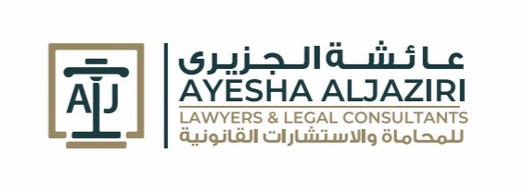In the UAE, knowing Anti-Money Laundering (AML) rules is essential for businesses that want to safeguard their financial systems from the risks of illegal money. The Central Bank of the UAE plays a key role in enforcing these regulations, ensuring compliance that safeguards economic integrity. This article examines UAE AML laws and outlines the duties of companies such as Danburite Corporate Services. Learn why following regulations matters and how it can improve your business’s image and success in operations.
Key Takeaways:
- UAE’s Anti-Money Laundering rules are important for businesses, helping them follow essential laws and guidelines set by regulatory bodies.
- Failing to follow the rules can result in heavy fines, while following AML practices improves reputation and the quality of operations.
- Implementing customer due diligence and reporting suspicious activities are essential obligations for businesses to mitigate risks associated with money laundering.
Overview of UAE AML Regulations
UAE AML regulations focus on aligning with international standards, particularly those set by FATF, to efficiently combat money laundering and terrorist financing.
1. Key Legislation
The foundation of the UAE’s anti-money laundering efforts is Federal Law No. 4 of 2002, which sets the legal rules for fighting money laundering and related activities.
The law mandates stringent measures, including customer due diligence, reporting suspicious activities, and the establishment of compliance programs by financial institutions.
Recent changes in 2020 tightened these rules, including measures for combined risk evaluation and increased fines for failing to comply.
Businesses should consistently train employees on AML practices and use tools like transaction monitoring systems to identify unusual patterns.
By following these rules, organizations make sure they meet legal requirements and build a culture of honesty and trust in the financial system.
2. Regulatory Authorities
The Central Bank of the UAE and the Financial Intelligence Unit are key in enforcing anti-money laundering rules and ensuring that financial institutions comply with them. These organizations monitor through routine checks and risk evaluations, helping businesses find weaknesses in their AML systems.
For example, the Central Bank publishes guidance documents outlining best practices for customer due diligence and transaction monitoring. Institutions must regularly submit reports on suspicious activities to the Financial Intelligence Unit, which analyzes these reports to identify patterns of money laundering.
Participating in training programs from these organizations is important for staff to stay informed about new regulations and meet compliance requirements.
Importance of AML Compliance for Businesses
Businesses that focus on AML compliance reduce the risks of financial crimes and improve their reputation and the quality of their operations.
1. Risks of Non-Compliance
Not following AML rules can result in serious consequences, such as fines reaching AED 5 million, the revocation of business licenses, and harm to your reputation.
Plus hefty fines, businesses may face operational setbacks such as increased scrutiny from regulators and the potential for criminal charges against executives. For instance, in 2022 alone, over $2 billion in fines were issued globally for AML violations, highlighting the urgency of compliance.
To reduce risks, companies should set up strong AML programs that contain:
- Regular staff training
- Monitoring systems such as Actico or NICE Actimize that operate without human intervention.
- Thorough record-keeping practices
Creating a culture of compliance protects against fines and builds trust with clients and partners.
2. Benefits of Compliance
Following AML regulations can build customer trust and create new business chances, especially in areas like real estate.
For instance, a real estate company that put strong anti-money laundering measures in place saw a 30% rise in client inquiries during the first year.
They adopted tools like ComplyAdvantage for risk assessment and KYC (Know Your Customer) processes. By establishing a clear connection with regulators, they prevented hefty fines and attracted investors looking for reliable partners.
Investing in AML compliance is not just about legal adherence; it strategically positions a business for growth and improved customer loyalty in a competitive market.
AML Obligations for Businesses
Businesses must put in place thorough AML programs that concentrate on checking customer identities and keeping an eye on questionable transactions.
1. Customer Due Diligence
Customer due diligence processes involve checking identities, knowing what customers want, and evaluating risks linked to transactions.
To set up a strong customer due diligence process, begin by using tools such as LexisNexis Risk Solutions for checking identities.
Follow this by employing software such as ComplyAdvantage to monitor transaction activity and flag suspicious behavior.
Create a clear checklist for customer interactions:
- Confirm identity
- Assess risk factors
- Document findings
Regularly check your policies using resources such as the Financial Action Task Force (FATF) guidelines to comply with changing regulations. This method reduces risk and builds trust with your clients.
2. Reporting Suspicious Activities
Businesses must establish clear steps for reporting any suspicious activities to the Financial Intelligence Unit, making sure that reports are submitted quickly and correctly.
To report any suspicious activities, use a clear step-by-step method. Start by documenting the incident details, including dates, times, and any witnesses, as this information will be useful for investigations.
Then, fill out the Suspicious Activity Report (SAR) form, available on your local Financial Intelligence Unit’s website.
Common examples of suspicious behavior include:
- Large cash transactions without clear purpose
- Unusual customer behavior
- Irregular transactions that don’t match a client’s profile
Submit your report within 24 hours after spotting the suspicious activity to meet requirements and allow for quick action.
AML Training and Awareness
Training staff on AML compliance is essential, with 90% of financial institutions reporting improved awareness post-training programs.
To create an effective training program, use e-learning platforms such as Coursera or LinkedIn Learning for interesting, on-demand content. Schedule training sessions quarterly, ensuring compliance updates are addressed.
Use interactive quizzes to check knowledge and memory; tools like Kahoot! can make quizzes fun and informative.
Measure effectiveness by tracking metrics such as employee performance on AML-related tasks before and after training, aiming for a 20% improvement. This organized method improves awareness and supports the institution’s commitment to following rules.
Enforcement and Penalties
Enforcement actions against businesses that do not follow AML rules show the serious consequences of non-compliance, including heavy fines and possible criminal charges.
Case Studies of Non-Compliance
Case studies of businesses fined for AML violations reveal common pitfalls and the importance of stringent compliance measures.
For instance, a large bank received a $1.5 million fine for not reporting suspicious transactions, showing the importance of strong monitoring systems. Similarly, an online payment service was penalized $270,000 due to inadequate customer due diligence procedures.
These cases show the need for strong AML programs that consist of:
- Regular training for staff,
- The use of compliance tools that operate without manual input,
- Periodic audits to identify potential vulnerabilities.
Businesses should take lessons from these cases to strengthen their compliance systems and prevent heavy fines.
Future Trends in UAE AML Regulations
Future trends in UAE AML regulations focus on using new technologies like AI to enhance monitoring and compliance activities.
AI tools will increasingly analyze transaction patterns in real time, identifying suspicious activities with greater accuracy.
For example, banks can use tools like Actico or SAS that apply machine learning methods to improve their anti-money laundering work. Blockchain technology offers transparency. For example, companies like Everledger use it to track the source of assets, which reduces the chance of fraud.
As rules change, businesses need to get ready for new technologies, adjusting their compliance plans to meet tougher regulations while using innovations for a competitive edge.
Frequently Asked Questions
1. What are the main goals of learning about UAE Anti-Money Laundering Rules for Businesses?
The main goals of knowing UAE Anti-Money Laundering Regulations for Businesses are to stop the financial system from being used for money laundering, to follow international rules, and to keep the UAE’s financial institutions trustworthy. Businesses are required to implement measures that identify, assess, and mitigate money laundering risks effectively.
2. How can businesses follow UAE Anti-Money Laundering Regulations?
Businesses can meet UAE Anti-Money Laundering Regulations by creating strong internal policies and procedures, providing regular training for employees, and using a risk-based method for checking customers. They should frequently check and revise their compliance programs to follow the latest regulations.
3. What are the consequences for businesses that do not follow UAE Anti-Money Laundering regulations?
Penalties for failing to follow UAE Anti-Money Laundering Regulations for Businesses can include large fines, penalties, and even criminal charges against those responsible for violations. Businesses can suffer damage to their reputation and limitations on their activities, which can significantly affect their ability to succeed in the long run.
4. What is the importance of businesses in knowing UAE Anti-Money Laundering Rules for Businesses?
Businesses are essential in grasping UAE Anti-Money Laundering Regulations for Businesses, serving as the primary barrier against money laundering activities. They are responsible for implementing due diligence processes, monitoring transactions, and reporting suspicious activities to the authorities. This proactive approach helps to identify and prevent potential money laundering risks.
5. What are the latest changes in UAE Anti-Money Laundering rules for businesses?
Recent updates in UAE Anti-Money Laundering Regulations for Businesses include stricter KYC (Know Your Customer) rules, new reporting requirements for high-risk transactions, and more attention on virtual assets and cryptocurrency transactions. Staying informed about these updates is essential for businesses to maintain compliance and avoid potential penalties.
6. How can training and awareness help businesses learn about UAE Anti-Money Laundering Regulations?
Training and awareness programs can greatly improve knowledge of UAE Anti-Money Laundering Regulations for Businesses by giving employees the information and skills they need to spot money laundering risks. Regular training helps create a culture of compliance and vigilance within the organization, ensuring that all staff members understand their responsibilities and the importance of adhering to regulations.








